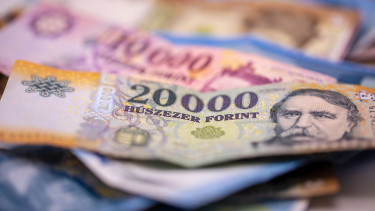Hungary slaps record fine of EUR 7 million on Booking.com

This decision, although seemingly a surprise for most players, falls in line with the practice of imposing significantly higher fines in unfair commercial practices cases than in previous years, which has also been admitted by the HCA. In 2019 the fine imposed in consumer protection cases was higher than for cartels, and it is even more so in 2020 so far.
1 - The infringements for which the fine was imposed
Pursuant to the decision, Booking.com B.V. has committed the following three unfair commercial practices:
- 1.1 - Misleadingly advertising certain hotel rooms with "free cancellation"
The HCA has objected to two conducts in this respect, namely
- the same rooms which were advertised with "free cancellation" were also available at significantly cheaper prices (with the exception of the actual cancellation by the consumer);
- "free cancellation" faced time and other limitations which became evident to the consumer only after choosing the accommodation.
The HCA stated that the flexibility, i.e. the ability to cancel a booking comes at an additional cost built into the price of the accommodation. The consumer does not have to pay for the room only if the consumer cancels the room. However, the consumer must pay a higher price if it does not cancel the booking and uses the room. In the HCA's interpretation the "possibility of cancellation" is not free, it is in fact included in the cost of the room, only the actual cancellation is free of charge. The HCA believes that consumers were harmed if they did not cancel such accommodation.
This decision falls in line with the authority's recent enforcement practice of being highly critical with the use of the expression "free". For instance, in the telecom sector, Magyar Telekom was found guilty (and fined €2 million) by the HCA for having failed to inform consumers that if they chose to obtain a mobile device at a discounted price or for free with the subscription contract, the monthly subscription fee would be higher than absent the device. For similar infringements, the HCA charged Telenor approximately €5.45 million in December 2019 and Vodafone approximately €600,000 in 2017.
The HCA has also fined Facebook in December 2019 for HUF 1.2 billion (3.6 million euros) for claims of the use of its services being free (e.g. "Free and anyone can join"), whereas the HCA stated consumers in fact paid for the use of Facebook by their detailed data, such as consumer preferences, interests and habits.
- 1.2 - Pressure selling
Using an aggressive, psychological pressure to achieve a fast booking by consumers (pressure selling); e.g. ("Highly sought after! (…), "Another booking! (…), "Last booking at the accommodation: Just now!") ("Only 1 room left!", "There are only 2 left!").
The HCA highlighted that these messages appeared during all parts of the booking process, i.e. after the searches in the results list, then later on the sub-sites of each hotel, were highlighted by red, and later also during the further steps of the booking process, even during the last step of the consumer submitting its data (e.g. "someone in that accommodation is booking now").
In the HCA's view, taken together, all messages were intended to ensure that the consumer should not only take a decision about starting a booking, but also to end (complete) the booking.
Booking.com claimed that the messages which have appeared contain real-time information and the real content, i.e. they were valid. However, the HCA objected to this indicating an example that when a message with "new booking" appears on the screen, the consumer cannot know to what period and which room this message applies. Moreover, the HCA did not investigate the validity, but the aggressiveness of the communication.
- 1.3 - Breach of duty of professional diligence
The HCA established that Booking.com has breached its duty of professional diligence by the non-unified appearance of "You can pay by Szép Card". The HCA objected to the fact that the possibility to pay by "Szép" card was not indicated the same way over the entire booking platform, e.g. for some hotels it already appeared in the search hit list, while for others only if and when the consumer opened the sub-page of the given hotel and only in the "small print" section. Booking.com had changed this last practice prior to the decision, and this was taken into consideration when setting the fine.
2 - Termination of the practices
The authority has banned the company from applying the above practices. In this context the HCA has obliged Booking.com to evidence to the HCA that
- it does not apply the statement "free cancellation" any longer if the consumer must pay a higher price for the same room than without the free cancellation option or when free cancellation has limits (or in these cases the limitations of free cancellation must be clearly indicated);
- it has discontinued applying messages aiming to pose a phycological pressure on consumers during the entire booking process in all its commercial practices; it may only apply such messages for the given accommodation and for the specific dates chosen by the consumer and only by indicating the real information (available accommodation and the number of the available rooms) and only regardless of the consumer opinions, and without indicating an additional value.
Booking.com had offered commitments in the proceeding, which were rejected by the authority.
The fine was also imposed irrespective of Booking.com's undertakings offered in December 2019 to change its commercial behaviour in the context of the European Consumer Protection Cooperation (CPC). The HCA has pointed out that the commitments offered in the CPC proceedings were different to what would have been required here (e.g. in the CPC commitment Booking.com has offered to show valid statements, whereas in the Hungarian proceeding the HCA did not object to the validity of the statements but the statements as a whole amounting to pressure selling. The HCA has also argued that it had contacted the other CPC authorities and they agreed that it was not necessary to apply a coordinated investigation under the CPC Regulation as the different proceedings concerned different conducts based on different legal basis and different time periods.
3 - What is to come in the future?
This trend of record fines for unfair commercial practices is expected to continue in the future.
This is not be limited to the travel sector – although the travel industry has been under close focus in recent years: after a sectoral inquiry finished in 2016 into the hotel online booking market, as well as the recent market analysis on the operation of digital comparison tools, among others, the functioning of online hotel comparison sites. The HCA has also revealed in the Booking.com decision that a proceeding is already ongoing against szallass.hu, the biggest Hungarian-owned travel booking site.
Naturally, the use of the expression "free" is not limited to the travel sector, and pressure selling is currently being investigated by the HCA in the e-commerce sector (alza.hu website).
This also evidences a certain shift on the enforcement priorities of the Authority, with significantly more emphasis on unfair commercial practices matters than earlier. Certainly, it is easier to obtain information regarding alleged unfair commercial practices from the websites of undertakings, as opposed to the difficulty of uncovering secret cartels, but this is not the only reason – similar enforcement priorities are also seen in other countries of the CPC network.
The shift is also visible with regards to the undertakings investigated. The HCA does not shy away from investigating and fining the largest companies, including Apple, Facebook and Viber, Booking.com, and in many cases being the first authority in fining these companies for a certain type of infringement.
The "biggest ever fine" charged by the HCA in Hungary for unfair consumer practices cases seem to change almost every month now, with the Booking.com fine unlikely to stay as such for very long. With commitments of investigated companies rejected in most cases, undertakings should pay even more attention to prior compliance to avoid investigation of the authorities.
By Anna Turi, Schönherr Hungary







